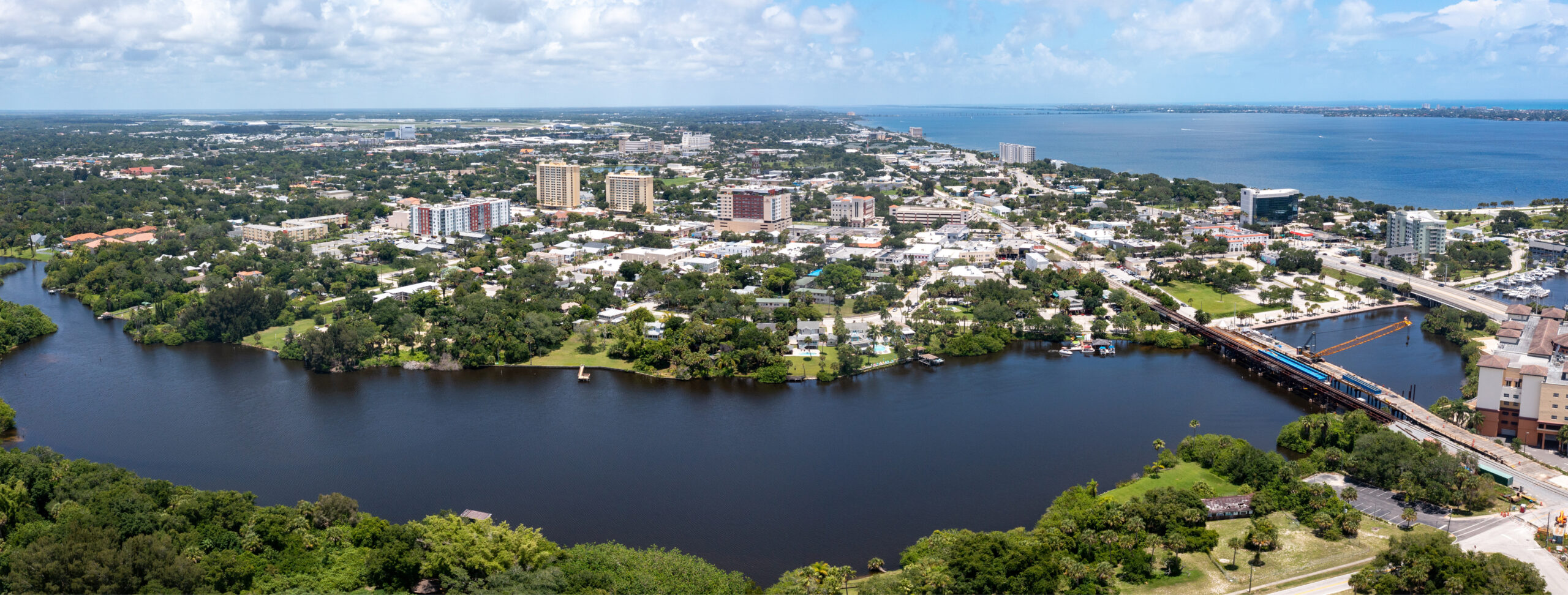Losing your driving privileges can be a life-altering event, especially when it happens as a result of a DUI charge. In Florida, the law is strict when it comes to administrative license revocation, which can occur even before a court conviction. Understanding the process, the penalties involved, and the potential defenses is crucial.
In the following article, we’ll go over Florida’s administrative license revocation laws, covering everything from the penalties you might face to the defenses that could protect your driving rights.
Melbourne License Revocation Attorney
The attorneys at Germain Legal are experienced in defending your driving privileges. If you are being threatened with a license suspension, you need to contact a qualified defense attorney immediately. The sooner you contact a defense attorney, the sooner we can begin building your defense.
Our office is located in Melbourne, Florida, and we proudly serve the surrounding communities of Palm Bay, Titusville, Rockledge, Merritt Island, Cocoa, and Satellite Beach in Brevard County; Vero Beach and Sebastian in Indian River County; Deltona and Daytona Beach in Volusia County; and Kissimmee and Poinciana in Osceola County.
Contact Germain Legal by calling (321) 775-3559 or submit an online form today to start building your defense.
Administrative License Suspensions in Florida
Under Florida States Section 316.1932, by choosing to drive in the state, individuals automatically agree to submit to breath, urine, or blood tests if a law enforcement officer suspects them of driving under the influence. An administrative suspension occurs when a driver either refuses to submit to a breath, urine, or blood test, or if their test results show a blood alcohol level of 0.08 or higher. This type of suspension is handled by the Department of Highway Safety and Motor Vehicles (FLHSMV). The suspension is automatic and is imposed immediately upon arrest.
Duration of Administrative Suspensions
For a first offense, the administrative suspension typically lasts six months. However, if the driver refused to take a test, the suspension period extends to one year. The penalties become more severe with subsequent offenses or refusals, with longer suspension periods imposed. For example, a second or subsequent refusal to take a test results in an 18-month suspension, with no option for a hardship license during this period.
Temporary Driving Permit
Once the suspension is in effect, the arresting officer usually issues a temporary driving permit. This permit is valid for 10 days from the date of arrest, allowing the individual some time to make arrangements. During this time, the driver can request a formal or informal review of the suspension by the FLHSMV. This hearing is an opportunity to challenge the suspension, though it is separate from any court proceedings related to the DUI charge itself.
Independence from Criminal Proceedings
It is also important to note that the outcomes of any criminal proceedings do not impact the administrative suspension. Even if a person is not convicted of a DUI in court, the administrative suspension can still stand. This is because the administrative process is independent of the criminal process, and its primary focus is on public safety rather than punishment.
License Revocation in Florida
| Classification | Penalty |
| First Offense (No Bodily Injury) | 180 days to 1 year revocation. The individual cannot drive during this period unless eligible for a hardship license. |
| First Offense (With Injury) | 3 years revocation or more. No driving privileges during this time unless a hardship license is obtained under strict conditions. |
| Second Offense (Within 5 Years) | Minimum 5 years revocation. Eligible for a hardship license after 1 year, must complete DUI school and remain alcohol-free. |
| Second Offense (After 5 Years) | 180 days to 1 year revocation. Similar conditions to a first offense; hardship license may be available. |
| Third Offense (Within 10 Years) | Minimum 10 years revocation. Eligible for a hardship license after 2 years, must complete DUI school and abstain from alcohol. |
| Third Offense (After 10 Years) | 180 days to 1 year revocation. Similar to a first offense; hardship license may be available under certain conditions. |
| Fourth or Subsequent Offense | Permanent revocation. May apply for a hardship license after 5 years, must remain alcohol-free and meet all DUI program conditions. |
| DUI Manslaughter (No Prior Convictions) | Permanent revocation. Eligible for a hardship license after 5 years if no prior DUI convictions, with strict conditions applied. |
Commercial Driver License (CDL) Disqualifications Because of DUI
Florida has strict rules for commercial drivers who are convicted of a DUI, given the greater responsibility they have on the road. A commercial driver’s license (CDL) holder convicted of a DUI while operating any vehicle faces a one-year disqualification from driving a commercial vehicle. The threshold for blood alcohol concentration (BAC) is lower for CDL holders, set at .04 rather than the .08 standard for non-commercial drivers.
If a CDL holder is convicted of a second DUI offense, regardless of whether the offense involves a commercial or non-commercial vehicle, the disqualification becomes permanent. This means the individual can no longer operate a commercial vehicle for life. There is no opportunity for a hardship license that allows limited commercial driving privileges after a DUI conviction.
Hardship License Eligibility and Process
When someone in Florida loses their driver’s license because of a DUI, they may be able to get a hardship license. This type of license lets them drive for work or essential needs like going to school or medical appointments. However, not everyone is eligible, and there are specific steps to follow.
Who Can Get a Hardship License?
To be eligible for a hardship license, a person must meet certain requirements. These include:
- First-Time Offenders: Those with a first DUI conviction might be eligible after completing a DUI school. They also need to show that they need to drive for work or other necessary reasons.
- Multiple Offenders: If someone has a second DUI within five years or a third DUI within ten years, they must wait longer and meet stricter conditions.
Certain situations make someone ineligible for a hardship license. For instance, if someone refused a breath, blood, or urine test more than once, they can’t get a hardship license.
Steps to Apply
The process of getting a hardship license involves several steps:
- Complete DUI School: Anyone seeking a hardship license must enroll in and complete DUI school. This program educates about the dangers of impaired driving and may involve treatment if ordered by the court.
- Apply for a Hearing: The individual must request a hearing with the Florida Department of Highway Safety and Motor Vehicles. During this hearing, they need to prove why they need a hardship license. They must also provide proof of completing DUI school and, in some cases, ongoing treatment. During a formal review hearing, the driver has the opportunity to present witnesses, evidence, and conduct cross-examinations. However, if the person fails to appear at the hearing without a valid reason, the suspension will remain in effect without further opportunity to contest it.
- Wait Periods: Depending on the severity of the DUI and the number of offenses, there may be a mandatory waiting period before applying. For example, a second offense within five years requires waiting at least one year before applying.
- Follow Rules: Once granted, the hardship license comes with strict conditions. The person must drive only for approved reasons, such as work, school, or medical needs. They might also need to install an ignition interlock device, which prevents the car from starting if alcohol is detected on their breath.
Acting quickly is important. If the person fails to follow these rules, their hardship license can be revoked, and they may face additional penalties.
Implied Consent Law
Florida has an implied consent law. This means that when a person accepts the privilege of driving, they automatically agree to submit to a breath, urine, or blood test if a law enforcement officer suspects them of driving under the influence.
If a driver refuses to take a breath, urine, or blood test, there are immediate consequences. For a first refusal, the driver’s license will be suspended for one year. If a driver refuses a second time, the suspension period increases to 18 months, and the refusal itself is considered a first-degree misdemeanor, which can carry additional penalties.
For commercial drivers, the stakes are even higher. A first refusal while operating a commercial vehicle results in a one-year disqualification from driving commercial vehicles. A second refusal results in a permanent ban from holding a commercial driver’s license (CDL), and there is no opportunity to obtain a hardship license to regain commercial driving privileges.
Special Considerations for Drivers Under 21
Drivers under the age of 21 face additional rules and penalties if caught driving after consuming alcohol. In Florida, the legal drinking age is 21, but the state has a stricter rule for drivers under this age. If an officer suspects a young driver of drinking and driving, the officer can request a breath test.
Lower Alcohol Threshold
For drivers under 21, Florida sets the blood alcohol level (BAL) limit at 0.02, significantly lower than the 0.08 limit for drivers 21 and older. If a young driver’s BAL is at or above 0.02, their license will be suspended for six months.
Education Requirements
In cases where the BAL is 0.05 or higher, the young driver must complete a substance abuse evaluation and an education course before they can get their license back.
Temporary Permit Restrictions
For young drivers, if their license is suspended for a DUI-related offense, they are issued a temporary permit that becomes valid 12 hours after it is issued and is only good for 10 days. This period is meant to allow the driver to arrange for alternative transportation and to begin addressing the consequences of their actions.
How a Lawyer Can Help with DUI-Related License Revocation or Suspension
Challenging the Suspension
A lawyer can help challenge the administrative suspension of a driver’s license, which happens automatically after a DUI arrest. This challenge must be made quickly, usually within ten days of the arrest. A lawyer can represent the individual at a formal review hearing, questioning the evidence against them and possibly preventing the suspension from taking effect.
Completing the Hardship License Process
Applying for a hardship license can be complicated and overwhelming. A lawyer can guide someone through the process, ensuring that all paperwork is correctly filed and deadlines are met. They can also prepare the individual for the hearing, helping them gather the necessary evidence to show the need for a hardship license.
Minimizing Penalties
If a person is facing a DUI charge, a lawyer can work to reduce the impact on their driving privileges. This might involve negotiating with prosecutors to reduce the charges or penalties, potentially resulting in a shorter suspension or revocation period. In some cases, a lawyer may be able to get charges dismissed altogether.
Advising on Compliance
Once a hardship license is granted, it’s crucial to follow all the rules to avoid further penalties. A lawyer can provide advice on how to stay within the legal limits, including the proper use of an ignition interlock device if required. They can also assist if any issues arise, such as allegations of violating the terms of the hardship license.
Additional Resources
Florida Law on DUI-Related Administrative License Revocations and Suspension – This resource provides information on the consequences of driving under the influence (DUI) in Florida, including how it can lead to the suspension or revocation of your driver’s license. The penalties vary depending on factors like blood alcohol level and whether it is a repeat offense. It also outlines the process for reviewing administrative suspensions and the potential for obtaining a hardship license after a DUI-related suspension.
Florida Statutes Section 322.28 – Periods of Suspension or Revocation – This law covers the specific periods during which a driver’s license can be suspended or revoked following a DUI conviction in Florida. It outlines the minimum and maximum duration of suspension or revocation based on the number of offenses and the severity of the incident. The law also provides guidelines for when a driver’s license can be permanently revoked, particularly for repeat offenders or those involved in DUI manslaughter.
Florida Statutes Section 322.271 – Authority to Modify Revocation, Cancellation, or Suspension Order – This law gives the Florida Department of Highway Safety and Motor Vehicles the authority to modify, suspend, or reinstate a driver’s license after it has been revoked, canceled, or suspended. It explains the conditions under which a person might be eligible for a restricted license. The law also outlines the requirements for reinstating a permanently revoked license.
Application for Administrative Hearing – This form is used to apply for an administrative hearing to potentially reinstate a driver’s license on a restricted basis following a suspension or revocation. The application requires personal details, information about the license suspension, and reasons for requesting the license.
Hire an Administrative License Revocation Attorney in Brevard County, FL
If you or a loved one have been charged with a DUI you need to contact an experienced DUI defense attorney immediately.
Our office is located in Melbourne, Florida, and we proudly serve the surrounding communities of Palm Bay, Titusville, Rockledge, Merritt Island, Cocoa, and Satellite Beach in Brevard County; Vero Beach and Sebastian in Indian River County; Deltona and Daytona Beach in Volusia County; and Kissimmee and Poinciana in Osceola County.
Contact Germain Legal by calling (321) 775-3559 or submit an online form today to start building your defense.



